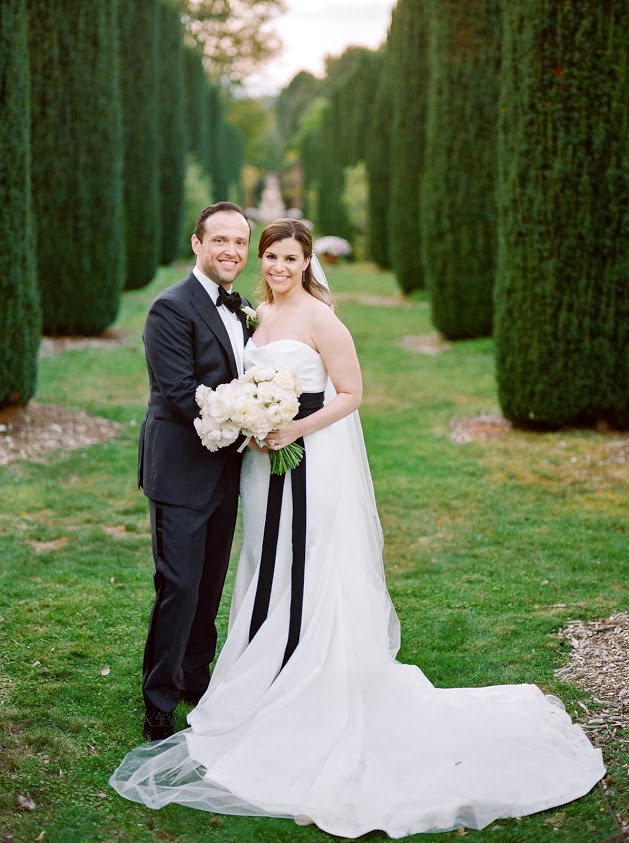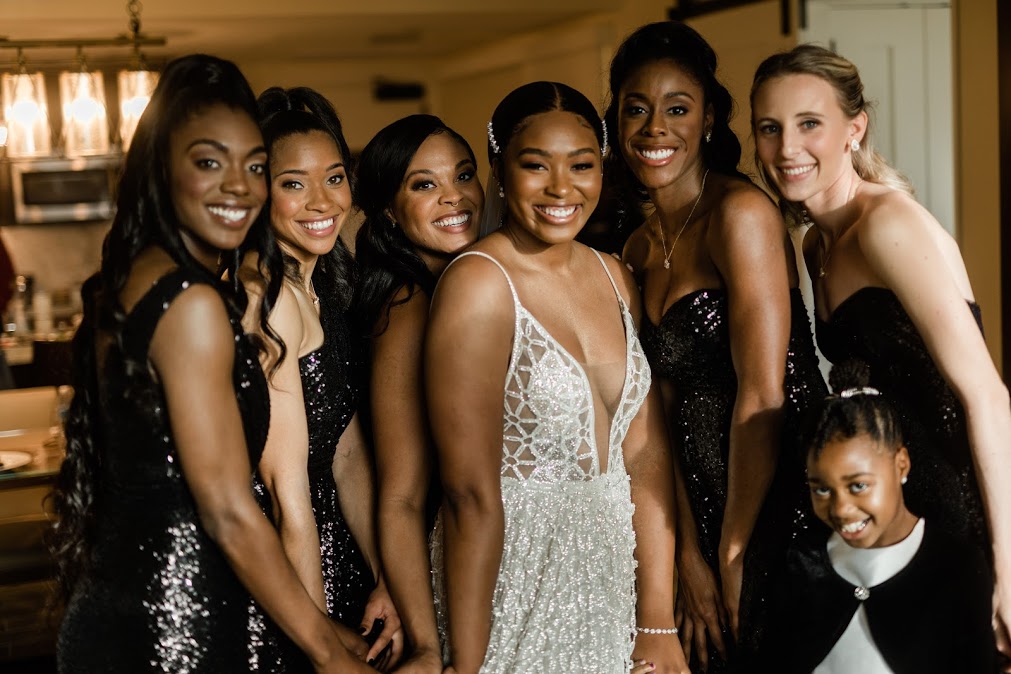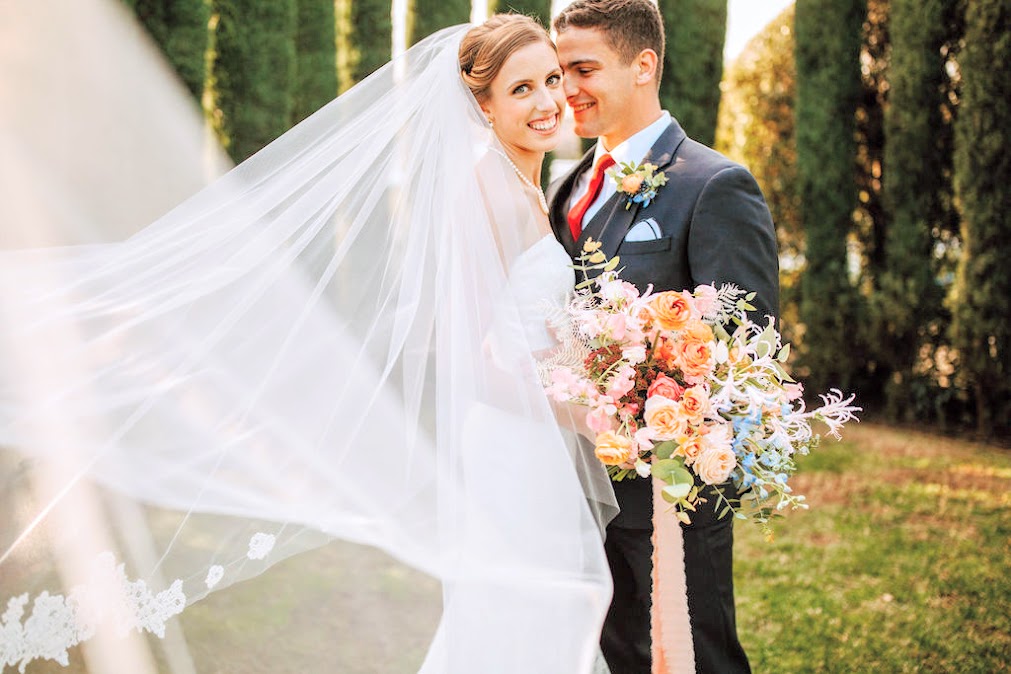We’ve previously shared with you one important thing you should include in your wedding budget: skin care. This week we’re diving into skincare and giving you a basic foundation on what you need to know to make know and understand your skin skin type. With the endless sea of skin care products, and videos, we know this can be an extremely overwhelming topic, so we’re breaking it down with first learning and understanding what your skin type is. This will play a huge role in creating your skin care routine to ensure your skin is in it’s best condition come your wedding day.
Your skin is THE largest system of the body and although it’s extremely important to take care of it all the time, a day as big as your wedding day surely is important enough to invest in a thorough and customized routine for soft, smooth, hydrated skin on the day of. We’re going to go through all of the skin types so you can find what your skin type is, some basic skin care guidelines, and some tips on how your skin type reacts with makeup.
Pro Tip: Always consult with a Dermatologist or licensed skin professional for the most accurate skin analysis and personalized skin care routine.
Skin Types
Although we are all unique and have specific concerns, skin types are labeled into five categories: normal, oily, dry, combination, and sensitive. Each skin type requires a specific kind of care and maintenance in order to keep your skin healthy. Let’s get into each skin type and what type of care is required.
Normal skin has balanced levels of water and oil within the layers of the skin, yet can become slightly more oily and dry at any point. The appearance is void of large pores, visible shine, and blemishes and is fairly smooth. Daily care for normal skin requires general care and maintenance. Normal skin has more flexibility of using a wider range of skin care products and less on correcting skin to achieve balance.
Makeup on normal skin will normally hold up very well throughout the day and is fairly simple to apply. Normal skin also allows the luxury of using a variety of finishes for foundations to achieve different looks (dewy skin, matte skin, natural matte skin.)
Oily skin is the excess of sebum or oils produced by the oil glands. Pores are enlarged and the skin appears “shiny.” Oily skin also is the skin type that is more acneic due to clogged and congested pores. In most instances, enlarged pores are usually on the inner part of the face in the t-zone area and for extremely oily skin can have enlarged pores all over the face.
Oily skin needs cleansing and removal of sebum and thus requires an oil free, gel based products as well as regular exfoliation to unclog pores of oil and dead skin (gross we know.)
We know oily skin sounds like its a bit of a pain to have BUT the good thing about oily skin is the natural moisture in the skin slows the aging process.
Improper care and preparation of oily skin before makeup can cause makeup to look shiny over time, sometimes within hours, or the skin can completely absorb the product leaving the skin looking splotchy, or like there is no makeup on at all.
MYTH: Remove as much oil as possible and don’t use moisturizer to eliminate oil on the face.
When the oil is stripped from the skin, the skin’s reaction is to produce more oil. Most of the time overstripping the skin of naturally produced oil and not replacing it will cause the skin to become even more oily. The use of a moisturizer that is right for your skin type actually reduces oil production over time and you will not look and feel oily or shiny.
Dry skin naturally lacks oil and the production of oil is usually insufficient. This leaves the skin feeling tight and sometimes stings after washing. Skin will become flaky when in dry weather or when not moisturized, and the pores are very small and minimal. Dry skin is also prone to aging at a much quicker rate than all other skin types due to the lack of natural emolliency.
Skin care for dry skin requires very emollient, rich products to add moisture back into the skin. Products like cream cleansers, face oils, hydrating serums and moisturizers are extremely important for keeping dry skin soft, hydrated, and healthy.
Makeup on dry skin that has not been properly prepped tends to look patchy, flaky, and dry. Without a sufficient amount of moisture, makeup can settle into fine lines and show any flawed skin texture.
Combination skin can comprise of both normal, dry, and oily areas at the same time. The t-zone, which includes areas of the center of the forehead, nose, inner cheeks, and chin can be oily, while the outer areas like cheeks, jawline, and hairline can be dry and flaky or even normal.
Unfortunately, the ideal care for combination skin is to address both the oily and dry areas with the appropriate products, which can require more time, money, and product though regular cleansing and exfoliation will properly address all types. It’s extremely important for combination skin to find balance.
Sensitive skin is skin that is usually characterized by redness and highly irritable by products, or exposure to environmental elements. Sensitive skin must be very careful of products used and exposure to sun, cold, and other weather elements.
Skin care for sensitive skin needs to be carefully curated, and most likely needs to be fragrance-free, paraben-free, and consist of as little ingredients as possible. Every product needs to be extremely gentle and mild both chemical and physical to avoid any irritation or reactions.
Makeup on sensitive skin can cause redness and itching throughout the day if skin does not agree with the product. Like all other skin types, the ideal state of the skin should be soft, supple, and moisturized.
Knowing your skin type is extremely important not only because your Makeup Artists want to properly assess and prep your skin so your makeup is suited to your skin and is long-lasting, but also because using the wrong products can be detrimental to your skin’s overall health. Using a cleanser for oily skin on dry skin will make it dry, inflamed and flaky so it really important to understand your skin and it’s needs.
Do you know what your skin type is? If so, what products do you use? We’d love to hear any product suggestions or throughts.



